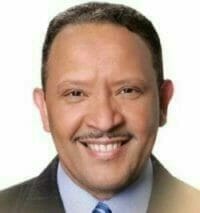“Georgia elections officials deployed a known strategy of voter suppression: closing and relocating polling places. Despite projections of record turnout, elections officials closed or moved approximately 305 locations, many in neighborhoods with numerous voters of color. Fewer polling places meant that the remaining locations strained to accommodate an influx of voters. Yet elections officials failed to supply sufficient, functioning voting machines and enough provisional ballots … Depriving polling places of basic tools needed for voting meant that voters who arrived at polling places anxious and excited to express their patriotism through the basic, fundamental act of voting were met with hours-long lines. Some lines were four hours long. Georgians who could not wait—because of disability, health, or work or family obligations – effectively lost the right to vote.” Fair Fight Action and Care in Action, plaintiffs in a federal lawsuit against Georgia election officials.
Voter turnout in the 2018 midterms hit a 50-year high, with more than 47 percent of the voting-eligible population casting a ballot. Across multiple media platforms, images of voters standing in long lines were used to illustrate voter enthusiasm.
While voter enthusiasm is great news, long lines at the polls are not. They are a sign of voter suppression, and immediate action must be taken at the state and federal level to expand early voting, voting by mail and other measures to reduce voter wait times and end voter suppression.
Georgia was among the most egregious examples. In suburban Gwinnett County, voters waited four hours when officials opened the polls to discover that their voting machines were not working. In downtown Atlanta, just three voting machines were provided for more than 3,000 registered voters, leading to wait times of three hours.
In many cases, long wait times at the polls are not the result of innocent mistakes, but part of a deliberate campaign to discourage voting, particularly in communities of color. According to a University of Pennsylvania study, minority voters are six times as likely as whites to wait longer than an hour to vote, even within the same town or county.
The study found that at least 200,000 people didn’t vote in 2014 because of the lines they encountered in 2012.
In crafting North Carolina’s notoriously racist “monster” voter suppression law, lawmakers researched which of the 17 days of early voting Black voters were most likely to use, then eliminated those particular seven days.
Fortunately, North Carolina’s law was overturned. But 13 states – even supposedly progressive states like Connecticut, New Hampshire and New York – have no form of early voting at all. In fact, New York is widely considered to have some of the worst voting laws in the country, holding its federal and state primaries on different days and establishing arbitrary deadlines for registration and party-switching.
After Florida’s chaotic 2000 Presidential recount, a wave of states adopted early voting in order to relieve pressure on election officials on Election Day.
It worked. According to Demos in 2013, “Early voting has recently surged among traditionally underrepresented voters. The 2008 election marked a dramatic increase in early in-person voting among African-American and Latino voters. And in Florida, where approximately 50% of ballots were cast early in 2012, African-American usage of early in-person voting has exceeded White usage in four of the five most recent federal elections.”
It’s easy to see why early voting became a prime target for legislators determined to suppress the Black vote.
There’s simply no excuse for any state not to allow early voting. Control of the New York State Senate changes parties with the January session. There is no better way for the Empire State to demonstrate its commitment to its motto, “Excelsior,” or “Ever upward,” than to establish early voting and set an example for the remaining states.
Marc H. Morial is President and CEO of the National Urban League. He was a Louisiana State Senator from 1992-1994, and served as mayor of New Orleans from 1994 to 2002. Morial is an Executive Committee member of the Leadership Conference on Civil Rights, the Black Leadership Forum and Leadership, and is a Board Member of both the Muhammad Ali Center and the New Jersey Performing Arts Center.


